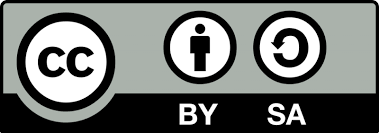The image of PISA tests in two colombian newspapers referrals to shape public opinion on the assessment
DOI:
https://doi.org/10.23824/ase.v0i20.97Downloads
Abstract
The PISA tests applied by OECD in 2012 had a strong impact in Colombia because of the low scores obtained by students . The news had more coverage in the press. In order to establish how they can shape public opinion on the subject because of the manner and direction in which they were addressed, were analyzed news , editorials, opinion columns and letters from readers (total 39 information units) appeared in two Colombian daily newspapers in two and a half months. Recognizing the evaluation as a social fact , the analysis focused around : quality of information sources used , breadth of perspective on the evidence by reference to the evidence and formulate action alternatives . The basic conclusions are : the sources of information to give opinion are very limited, they aren´t criticized and the focus is on the scores ; these show a very negative picture that is extended to all the country's education ; teachers are largely responsible for the failure. The opinion that the media contribute to form is negative.
How to Cite
Issue
Section
Published
Keywords:
educational assessment, assessment of students, educational testing, student achievement, public opinionLicense

Attribution Share-Alike CC BY-SA
Those authors who have publications with this magazine, accept the following terms:
A) The authors will retain their copyrights, which will be simultaneously subject to the Creative Commons Attribution License that allows others to re-mix, modify and develop on your work even for commercial purposes, provided they credit you And to license their new works under the same terms.
B) The authors will retain the rights of exploitation of the intellectual property of this work, and especially the rights of reproduction, distribution, transformation in any of its modalities and public communication of said work, which will be simultaneously subject to the License Of recognition of Creative Commons that allows others to re-mix, modify and develop on your work even for commercial purposes, provided they credit you and license your new works under the same terms.
Creative Commons Attribution-ShareAlike 4.0 International Public License

